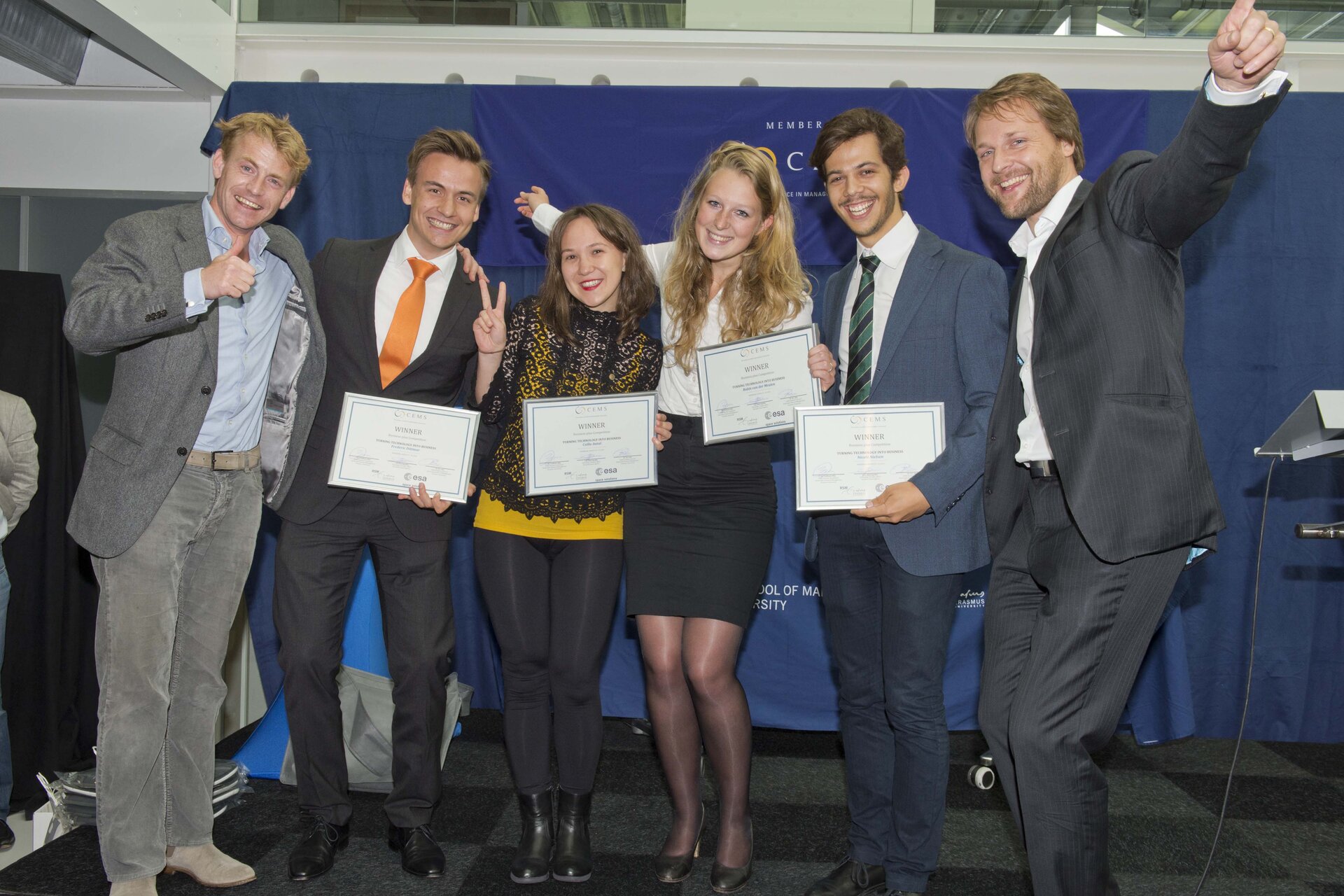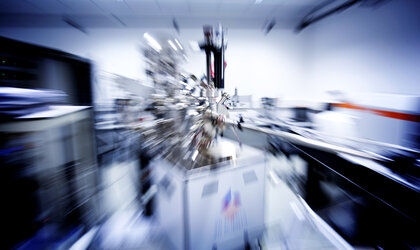Students find new business ideas with space technology
Last week, international management students used space technology as a platform for creating new business ideas during an annual week-long seminar at ESA.
In total, 58 students from Rotterdam School of Management, Erasmus University (RSM) and partner universities worldwide were hosted at ESA’s ESTEC space technology centre and adjacent Business Incubation Centre in Noordwijk, the Netherlands to apply their business and management expertise to specific cases of space technology spin-offs.
Divided into two groups, half of the students followed the “Entrepreneurial Challenge: Turning Technology into Business” stream while the other pursued the “New Venture Creation: Consulting the Directors of a Start-up Company”.
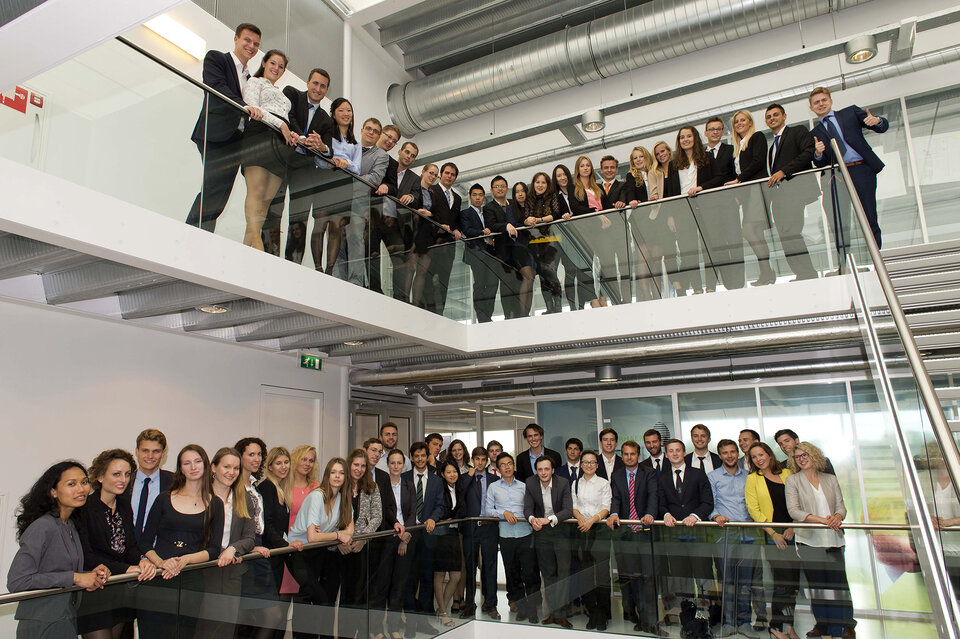
While the first was a competition to create business cases out of one space technology, the students were paired in the second with incubator start-up companies, where they acted as business consultants to the entrepreneurs.
Since 2005, ESA and its Technology Transfer Programme Office (TTPO) in collaboration with RSM has provided the set-up for this yearly seminar. It earned glowing accolades from all participants who found the potential of advanced space technologies was far ahead of any used on Earth.
Space spin-off: the next frontier for business?

This year’s Entrepreneurial Challenge was to create a business case using a special space technology from the Dutch Space company that detects the presence of various types of gases in the air.
“Usually we give the students an ESA Intellectual Property to work with," explained TTPO’s Niels Eldering.
"This year we did it a bit differently. We gave them access to data from a space technology and they has to commercialise them – creating a viable business idea based on these data.”

Many ideas were analysed by the competing seven teams before the final business cases were presented to the joint ESA–RSM jury. The winning team proposed to use the knowledge of which gases it found in the air to tailor skin cream products to handle particular environmental situations.
Nicolò Nielsen, a Master’s student from Copenhagen Business School, commented, “In our project, we were challenged to use air-quality information that is currently not profitable, and create a business case out of it.”

All faced obstacles because of their non-technical backgrounds. Team mate Robin Van Der Meulen, from RSM, noted, “It was hard for us to see the business potential. Using experts’ knowledge, professional advice and research in the existing field helped us through the development of the business case, and made our trial and error process much more efficient.”
“Now knowing that we can master a space technology to build a business preposition, this week’s work has made us all confident that we can address advanced technology in our future careers,” added Nicolò. “We also learned the importance of having a variety of skills and knowledge in the team.”
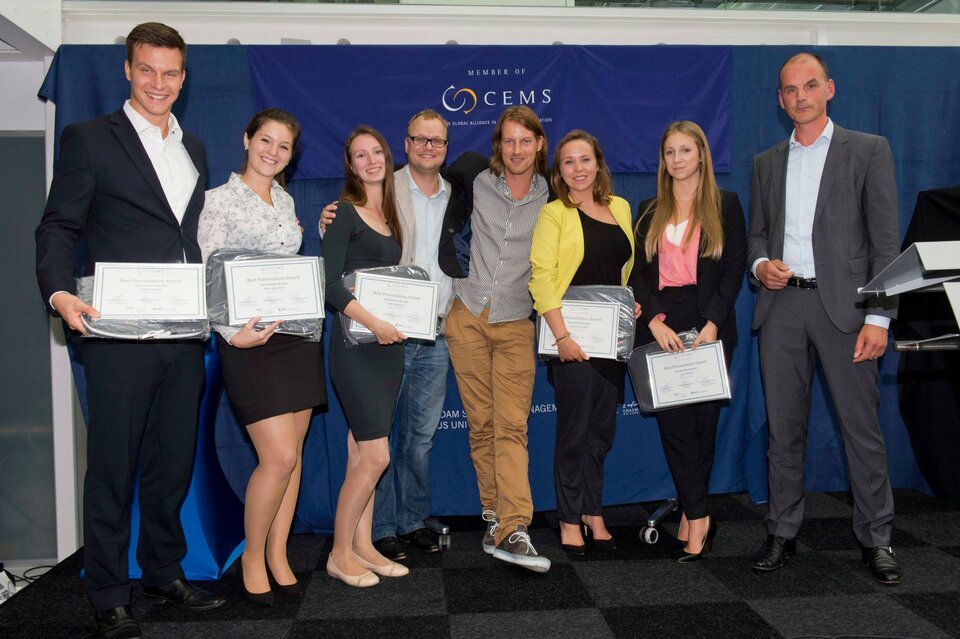
The students worked throughout the week at ESA among spaceflight equipment exhibits and in the solar-panelled incubator complex – one of the most sustainable office buildings in Zuid Holland – with everyone continuing late into the night to brainstorm ideas and perfect their business ideas. During the week they also attended workshops, presentations and lectures addressing intellectual property rights, developing business plans, entrepreneurship, consultancy assignments, investor perspectives and selling business cases.
Celebrating 10 years of collaboration
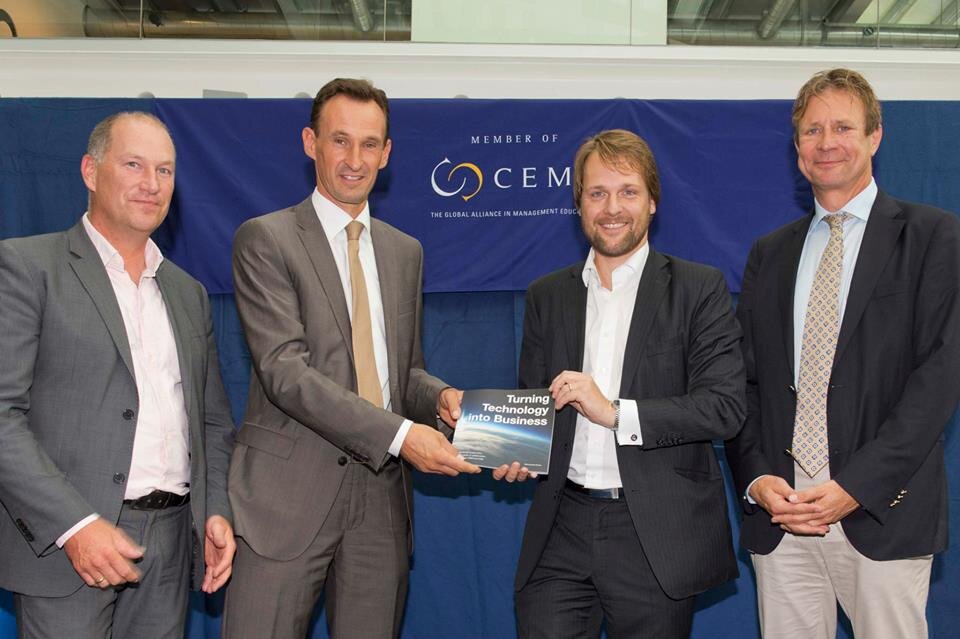
The yearly seminar as an integrated part of RSM’s ‘CEMS’ curriculum was started 10 years ago by ESA’s Niels Eldering and RSM Associate Professor Wim Hulsink. This collaboration was celebrated with the launch of the booklet Turning Technology into Business. It describes the many business cases produced by the students over the years.
The seminar is a mandatory element of the international CEMS Master in International Management degree – a highly ranked international MSc curriculum offered by a number of world-leading business schools, including RSM, in collaboration with multinational companies and non-profit organisations.
CEMS is a global alliance of 28 world-class academic business institutions and over 70 corporate business partners dedicated to educating and preparing future generations of global business leaders for today’s multilingual, multicultural and interconnected business world through its recognised Master’s in International Management.


